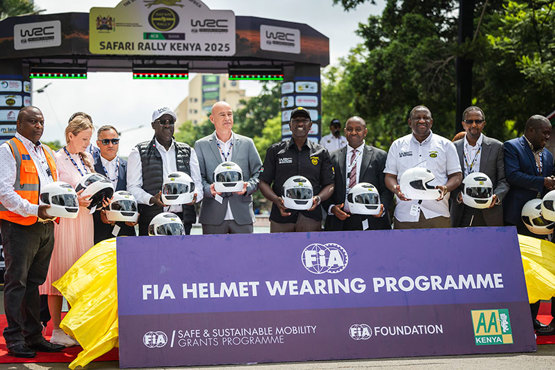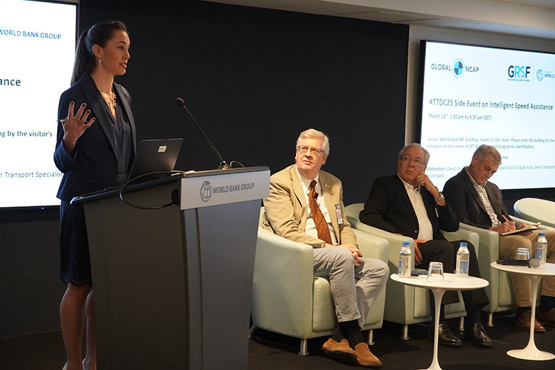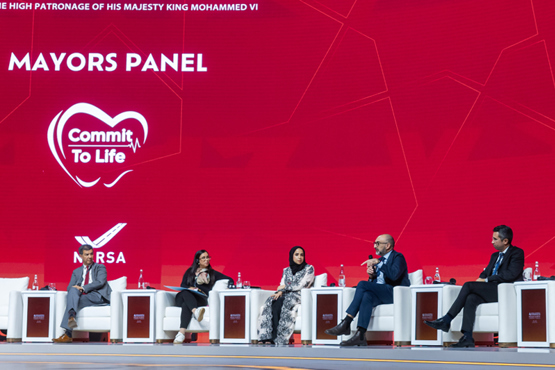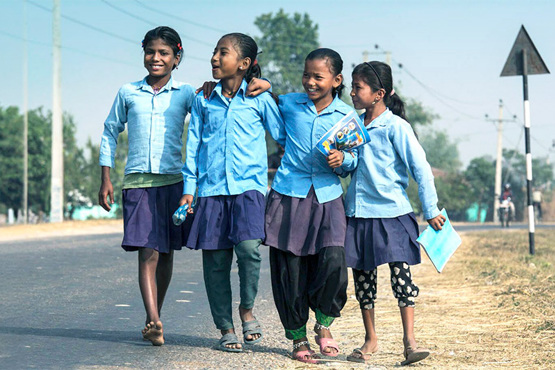Asia Pacific collaboration urges action on powered two-wheeler safety
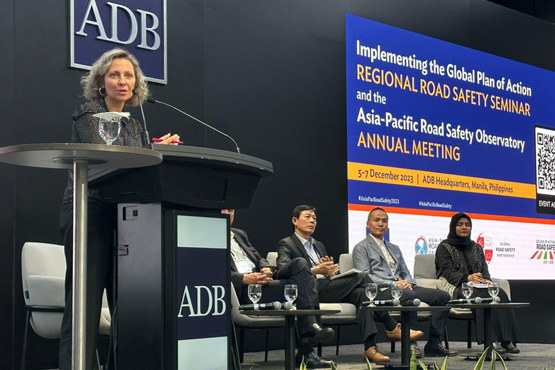
Motorcycle safety was among the key road safety areas brought into the spotlight by the FIA Foundation and key stakeholders at a high-profile regional road safety seminar in Manila. The event, which combined the APRSO Annual Meeting and the GRSP Regional Road Safety Seminar was hosted by the Asian Development Bank (ADB) and brought together road safety stakeholders from across the region and beyond.
Programmes Director, Aggie Krasnolucka facilitated a workshop outlining progress toward powered two-wheeler (PTW) safety and addressing key challenges of implementing safety through initiatives and measures to overcome them. Discussions on motorcycle ABS, motorcycle helmet use and helmet quality, safe infrastructure, and community and government engagement in motorcycle safety were aimed at maintaining the momentum in Asia-Pacific following the 2022 Dialogue. The workshop also raised awareness of new and planned activity in motorcycle safety within the region and brought to the fore priorities that still need to be addressed in motorcycle safety. The interactive session preceded an ABS demonstration led by Global NCAP and ASEAN NCAP, and a discussion led by MIROS and Towards Zero Foundation on the importance of mandating ABS in the region.
Participants in the workshop included research and academia, non-governmental organizations, government representatives, and international development partners. They heard from a range of speakers including FIA Foundation partners AIP Foundation and YOURS. The key outcome of the workshop was the launch of a collaboration for PTW safety in Asia Pacific with scope for wider reach to other countries within the region.
Aggie Krasnolucka, FIA Foundation Programmes Director, said: “The Asia Pacific region suffers from extremely high numbers of death and injury caused by powered two wheelers. Addressing these issues as a matter of urgency is crucial. We know the solutions that could be implemented to immediately decrease the toll of death and injury, and the Forum in Manila offered an opportunity to share this best practice with representatives of governments, civil society, and academia from across the region.”
The three-day conference also addressed a number of issues high on the agenda of the FIA Foundation such as child and youth wellbeing, and the gender perspective in transport planning. Aggie represented the FIA Foundation at sessions focused on both areas, looking at the critical role of road safety in enhancing child and youth wellbeing with a particular focus on the Asia Pacific region, highlighting the how our road systems can be changed, partnerships strengthened, and programmes better financed to encourage active travel and enable child and youth wellbeing improvements. The session focusing on the gender gap in road safety data emphasized the importance of policy development tools in ensuring gender issues are addressed by prioritising research, policy and action.
The second edition of the Speed Management Road Safety Manual published by the WHO, World Bank, Global Road Safety Partnership and the FIA Foundation was launched during the conference. It includes new data and guidelines on setting and enforcing speed limits, road modifications that reduce speed, in-vehicle technology, raising awareness of dangers, and monitoring and evaluating progress.
The Regional Road Safety Seminar brought together over 230 participants from 53 countries encouraging new partnerships and collaboration between government representatives and private sector, international partners, and local NGOs all deeply engaged in issues affecting road safety and all working towards implementing the Global Plan of Action.
